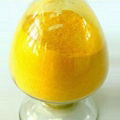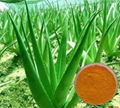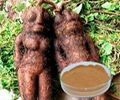| Model: | - |
|---|---|
| Brand: | - |
| Origin: | Made In China |
| Category: | Agriculture & Foods / Agricultural Products & Resources / Plant Extract |
| Label: | Ellagic Acid , plant extract , herbal extract |
| Price: |
-
|
| Min. Order: | - |
Product Description
Effectiveness: Anti-Cancer/ Antioxidant/ Skin Benefits/Antisepsis/Anti-Inflammation
CAS NO.: 476-66-4
Specifications: 40%,90%
Test Methord: HPLC
Formula: C14H6O8
Molecular Weight: 228.25
Apprearance: Brown yellow powder
Product Resource: Extracted from the bark of Punica granatum L.
Plant of Origin: Pomegranate Rind
Effectiveness of use:
1. Antioxidant: Ellagic acid is a potent antioxidant important in clearing free radicals from the body. Free radicals are natural byproducts of many different chemical reactions in the body, but are also found in the environment through exposure to radiation, automobile exhaust, heavy metals and smoke, according to the website DoctorsLounge. These unstable and highly reactive molecules can interact and disrupt many different reactions in the body, resulting in irreversible damage. They have been implicated as playing a role in a variety of conditions, such as the aging process, heart disease and cancer. Ellagic acid may bind or interrupt free radical-induced damage or prevent free radicals from forming all together.
2. Anticarcinogen: Ellagic acid may have anticarcinogenic effects for a variety of cancers such as breast, colon, prostate, skin, pancreas and esophagus. An anticarcinogenic molecule is defined as any chemical that reduces the occurrence or severity of cancers, while carcinogens are any molecule that is known to cause cancer, such as benzene, radiation or asbestos, according to the American Cancer Society. Ellagic acid may combine with cancer-causing molecules, preventing damage, and they also inhibit the growth of certain tumors. Ellagic acid may also prevent the destruction of a certain gene known as p53, which has been linked to a variety of cancers when normal function in disrupted. However, more research studies are needed to determine the effectiveness of ellagic acid as an anticarcinogen in humans.
3. Reduces Atherosclerosis: Atherosclerosis, or hardening of the arteries as a result of plaque buildup, increases the risk of developing heart disease. According to a study published in 2008 in "The British Journal of Nutrition," ellagic acid in walnut extract reduces inflammation responses in blood vessels, which in turn reduces buildup of plaque.
4. Promotes Liver Health: Oxidative stress, which occurs during normal energy metabolism, creates highly reactive free radicals that can damage organs and tissues. A study published in the April 2010 issue of "Biomedicine and Pharmacotherapy" found that ellagic acid protects liver cells from oxidative stress by reacting with free radicals before they can cause damage. Ellagic acid may alter the metabolism of certain medications or other dietary supplements, so it is important to consult with your healthcare provider before taking ellagic acid.
5. Skin Benefits: According to a research study in the August 2010 issue of "Experimental Dermatology," ellagic acid has several benefits for the skin. Collagen is an important protein that adds elasticity to skin, and degradation can lead to wrinkles. Ultraviolet light can increase the activity of proteins in the skin called MMPs, or matrix metalloproteinases, which can degrade collagen. Ellagic acid was shown to inhibit the production of MMPs by ultraviolet light and thus help prevent wrinkles. Ellagic acid was also shown to weaken a variety of ultraviolet light-induced inflammatory molecules that play a role in skin damage.
Detail information:
Ellagic acid is a phytochemical found in fruits and nuts, which functions as an antioxidant. Antioxidants are compounds that prevent damage to cells in your body that lead to degenerative diseases like heart disease and cancer. Ellagic acid is found naturally in pomegranates, blackberries, raspberries, cranberries, pecans and walnuts. The American Cancer Society recognizes that ellagic acid may be beneficial to health, although they state that more research in humans is needed. Cancer and other health conditions should always be treated under the supervision of a physician.
Ellagic acid is a tannin, which is a naturally occurring compound found in walnuts and a variety of fruits. You may be familiar with tannin being used to describe the complexity of a red wine. Though ellagic acid is found in many antioxidant fruits, it is not a medically accepted component in cancer treatment. The staff of Memorial Sloan-Kettering Cancer Center warn the anti-cancer properties of ellagic acid have been s ested in laboratory animal studies but not confirmed in human subjects.
The pomegranate is one source of ellagic acid. This fruit, native to Iran and India, is now cultivated in California and Arizona. It is growing in popularity because of its antioxidant, anti-viral and anti-cancer properties. Pomegranates are rich in minerals, like iron, calcium and potassium. In addition to ellagic acid, pomegranates contain folic acid and vitamins A, C and E. Pomegranate rind, which is a by-product of the juice process, contains ellagitannins. Pomegranate rind extract in the ingredient in supplements that promise cancer prevention and relief from chronic inflammation.
Application Scope:
Preventing and curing the colon, esophageal, liver, lung etc. cancers; promoting human body’s disease-fighting immune system. Ellagic acid – extract from the seedcase of punica granatum L., by reason of its excellent resistance to oxidation, already used in the food antioxidant.
Member Information
| Xi'an TCM Biological Technology Ltd | |
|---|---|
| Country/Region: | Shaan Xi - China |
| Business Nature: | Manufacturer |
| Phone: | 13289277365 |
| Contact: | Charlse Lee (sales manager) |
| Last Online: | 24 Aug, 2014 |








